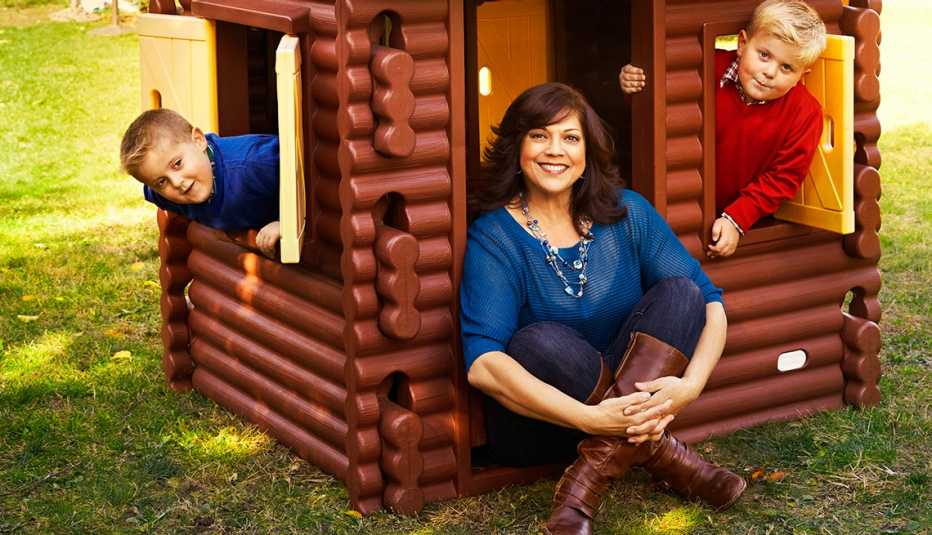AARP Hearing Center


Sarajean Grainson discovered last summer that living in a Lutheran parsonage in Rockville Centre, N.Y., was a wonderful alternative to the colonial-style home that she had shared with her family for decades.
The move came as Sarajean, 59, and her second husband, pastor David Grainson, 46, were adjusting to adding three children to their brood after she turned 50. The Grainsons are the parents of 5-year-old twins, Matthew and David. They also have an 8-year-old son, Luke.
Sarajean has three children from a previous marriage. Becoming a mother again was all about giving her husband, a former Roman Catholic priest, a profound gift of love. "This is a good man," she said. "I wanted him to have the experience of parenthood more than anything. And I wanted to have a child with him."
She is part of a growing trend in America of women giving birth into their fifth decade.
In 2013, an average of 13 children were born every week to mothers 50 and older, most of whom used in vitro fertilization. "To be honest, David didn't want to take the risk — he was afraid for my health," said Grainson, who delivered babies at 51 and 53. "He married me [in 2001] thinking he would not have children. Then I saw a woman on television [discussing IVF]. I said, 'This is my last chance.' "
The notion of delivering babies after 50 is not as inconceivable as it once seemed. Rajo Devi gave birth at 70 to her first child in 2008 in India. She is the oldest woman recorded to give birth.
Births by women ages 50 to 54 rose by more than 165 percent from the year 2000 (255 births) to 2013 (677 births), according to the Centers for Disease Control and Prevention. The overall increase in fertility rates for women 35 and older during the last two decades is linked, in large degree, to IVF. The first child born through the fertility-enhanced method was in 1978 in England. Sure enough, from 2008 to 2012, the birth rate in England doubled for women 50 and older.
Why some disapprove
But social attitudes have been slow to catch up with medical advances. Last year, a survey of more than 2,000 U.K. citizens revealed that nearly 75 percent found it unacceptable for women beyond their natural child-bearing years to conceive with IVF. No similar survey has been taken in the U.S., but experts say clearly many disapprove.
Skeptics wonder about the life span of the new 50-ish mother, and they also fear parents might not "possess the requisite stamina," said Bonnie Steinbock, a bioethicist and professor emeritus at the University at Albany in New York. "They wonder how she will handle a recalcitrant toddler in the terrible twos," Steinbock said. "Will she be able to relate? Will the child feel embarrassed because the parents look like everyone else's grandparents?" Others believe it is "unnatural" to use IVF technology in older women, that science is usurping the natural order.


But for Steinbock, the strongest argument in favor of post-50 births is procreative liberty. "People should be able to make their own decisions," she said. "Others may not like it, but the argument is this: It is none of their business."
Others agree. "These are intelligent women — they are not silly, stupid or frivolous," said Mark Sauer, M.D., a pioneer since 1986 in using IVF with older women and vice chair of the Department of Obstetrics and Gynecology at Columbia University Medical Center in New York. "They seem to be healthy, and they understand there's a risk of death with having a baby."


































































More on Home and Family
The Duke's Gruff Love
Almost 40 years after John Wayne's final film, his children reminisce about life in his shadow